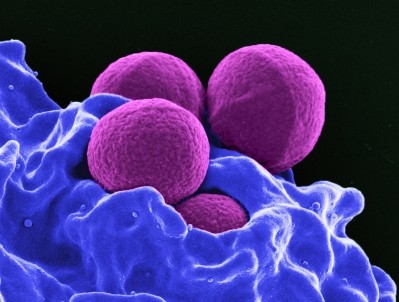Live biotherapeutic complements antibiotics in serious hospital infection

UK -based Destiny Pharma is a clinical stage biotech company that focuses on developing medicines that prevent life-threatening infections including live biotherapeutic M3 (NTCD-M3).
It announced today that data generated from a CDI model study on the ability of M3 (NTCD-M3), a non-toxigenic strain of the infection, can colonize the gut following administration of fidaxomicin. The data has been peer-reviewed and published in journal Microbiology Spectrum.
A phase 2 clinical trial in patients suffering CDI demonstrated that administration of NTCD-M3 shortly after the use of antibiotics to treat the initial infection, successfully reduced recurrence of CDI from 30% in placebo to 5% in treated patients.
Patients with an initial toxic CDI were given either vancomycin or metronidazole as treatment before being given the NTCD-M3 treatment. Since this this trial ended, fidaxomicin – a new antibiotic – has been added to U.S. clinical guidelines for treating CDI.
The company says that it is known that fidaxomicin, and in particular its active metabolite, stay in the gut for longer, potentially inhibiting colonization by bacteria such as NTCD-M3.
Bill Love, chief scientific officer of Destiny Pharma, said: “This publication, authored by leading US CDI expert Stuart Johnson, is a landmark for NTCD-M3, as the use of fidaxomicin is growing and it has recently been recommended by guidelines as the first choice for treatment of CDI in the US.
“This demonstration of successful and complete colonization of the gut by NTCD-M3 post‑fidaxomicin, confirms that this groundbreaking live biotherapeutics product can be used alongside all currently recommended antibiotics in the treatment of this serious hospital infection.”
This publication from research completed by the Microbiology Research Laboratory at the Edward Hines, Jr. VA Hospital in the U.S., has addressed this question by monitoring the colonization of NTCD-M3 in an established and highly translatable CDI model following administration of fidaxomicin.
In summary, the paper concludes that NTCD-M3 is able to effectively and fully colonize the gut following fidaxomicin administration, indicating that NTCD-M3 would be effective in patients receiving this antibiotic, as well as older antibiotics, such as vancomycin and metronidazole.
























